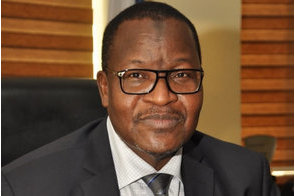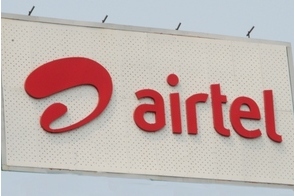Latest News
NCC approves 50 percent increase in mobile telecom tariffs

News Highlight
According to NCC, the telecommunications sector contributed for 16.26% of the Nigerian GDP in the second quarter of 2024.
Nigerian Communications Commission (NCC) on Monday approved a 50 percent increase in the tariffs charged customers by mobile telecommunication service providers in the country, including MTN, Airtel, Glo, and 9 Mobile.
The increase will see the tariff for voice calls increase from N11.00 per minute to N16.50 per minute. The cost for SMS will also increase from N4.00 to N6.00. And the cost of 1GB of data will jump from N350.00 to N525.00.
The upward review of the tariffs falls short of the 100 percent increase which the mobile telecommunication companies (telcos) had clamoured for.
“The Nigerian Communications Commission, pursuant to its power under Section 108 of the Nigerian Communications Act, 2003 to regulate and approve tariff rates and charges by telecommunications operators, will be granting approval for tariff adjustment requests by Network Operators in response to prevailing market conditions,” NCC said in a statement. “The adjustment, capped at a maximum of 50 per cent of current tariffs, though lower than the over 100 per cent requested by some network operators, was arrived at taking into account ongoing industry reforms that will positively influence sustainability.”
NCC added: “These adjustments will remain within the tariff bands stipulated in the 2013 NCC Cost Study, and requests will be reviewed on a case-by-case basis as is the Commission’s standard practice for tariff reviews. It will be implemented in strict adherence to the recently issued NCC Guidance on Tariff Simplification, 2024.”
Nigeria’s inflation has been rising, reaching 34.80 percent in December 2024, according to data from the National Bureau of Statistics, exacerbated since June 2023 by sharp depreciation in the value of the naira and removal of petrol subsidy. The depreciation in the local currency by over 260 percent since May 2023 has adversely impacted the financial and operating costs of the telcos in the face of inadequate grid electricity supply and other poor infrastructure.
The consumers have been experiencing poor quality of service as the network operators have not adequately invested in their networks to stabilise and improve their services.
According to NCC, tariff rates have remained static since 2013, despite inflation and rising operational costs that have strained the telecommunications industry.
While the increase in tariffs is expected to ease the revenue issues of the telcos, it is likely to worsen the ability of subscribers to sustain their level of service consumption. This is as inflation has continued to affect individuals, households, and businesses, leading to business closures, labour layoffs, and rising poverty. In this scenario, the 50 percent increase in the telecom tariffs will likely further drive inflation and its negative impacts.
Reacting to the hiking of the tariffs according to the reporting by Punch newspaper, the President of the National Association of Telecoms Subscribers, Adeolu Ogunbanjo, said there was no agreement reached at the meeting with stakeholders on new tariffs.
“A 50 per cent increase will cripple Nigerians. We will not accept this. A moderate increase is enough, and operators should explore other ways to generate funds,” Ogunbanjo said, adding that
an increase of about 5 – 10% might be acceptable to the association.
According to NCC, the telecommunications sector contributed for 16.26% of the Nigerian GDP in the second quarter of 2024.
MTN, the largest network operator in Nigeria by the number of subscribers, reported a profit of N4.1 billion in Q3 2024. But over the first nine months of the year, it recorded a loss of N514.9 billion in profit after tax, driven by foreign exchange losses. Airtel Africa reported that the contribution of its Nigeria subsidiary to the group’s turnover declined by 51.6% to $256 million in the quarter ending 30 June 2024, from $528 million a year earlier. But in naira terms, Airtel Nigeria’s revenue contribution grew by 33.2% year-on-year.
Related News
Latest Blogs
- How Tinubu is ensuring equitable access to public services
- Nigeria’s economic reform faces new threats
- What Ould Tah’s tenure at BADEA reveals about his AfDB candidacy
- Implementation strategy crucial for the success of 12-4 education policy
- A senator’s suspension threatens the right of representation
Most Popular News
- Artificial intelligence can help to reduce youth unemployment in Africa – ...
- Tariffs stir inflation fears in US but offer targeted industry gains ...
- Nigeria records $6.83 billion balance of payments surplus in 2024
- Tinubu appoints new Board Chair, Group CEO for NNPC Limited
- CBN net reserve hits $23.1 billion, the highest in three years
- Soaring civil unrest worries companies and insurers, says Allianz









